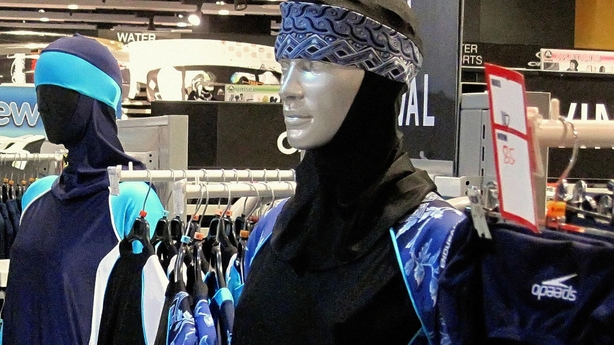German Interior Minister Thomas de Maiziere has voiced support for a partial burqa ban amid a national debate on integration.
Mr De Maiziere told public television that the full face veil "does not belong in our cosmopolitan country".
"We want to show our faces to each other and that is why we agree that we reject this - the question is how we put this into law," he said.
"We agree that we reject the burqa, we agree that we want to introduce a legal requirement to show one's face in places where it is necessary for our society's coexistence - at the wheel, at public offices, at the registry office, in schools and universities, in the civil service, in court," he added after a meeting with regional counterparts from his conservative party.
Mr De Maiziere indicated that outlawing the burqa only under certain circumstances - as opposed the blanket ban favoured by the hard right of Chancellor Angela Merkel's Christian Union bloc - would be "likely to win approval" in parliament.
Ms Merkel's "grand coalition" holds an overwhelming majority in the Bundestag lower house.
Mr De Maiziere's position represents a compromise with hardliners ahead of two key state elections next month in which the right-wing populist Alternative for Germany (AfD) party looks set to make strong gains.
Just last week he had rejected a call from conservative state interior ministers for a burqa ban, saying: "We can't ban everything that we reject, and I reject the wearing of the burqa."
He made the comments on 11 August as he announced tough new anti-terror measures after two attacks in Germany last month claimed by the so-called Islamic State group.
The measures included a controversial proposal to strip jihadist fighters of their German nationality.
The security package also calls for deportations of convicted criminal migrants to be sped up and police resources to be boosted.
The AfD in particular has attempted to link the record influx of migrants and refugees, many from the Middle East, to Germany last year with an increased threat of terrorism - an argument Ms Merkel sharply rejected this week on the campaign trail in her home district.
Meanwhile, Nice has become the latest French seaside resort to ban the burkini, the body-concealing Islamic swimsuit that has sparked a heated debate in secular France, city officials said today.

Using language similar to bans imposed in a string of other towns on the French Riviera, the city barred apparel that "overtly manifests adherence to a religion at a time when France and places of worship are the target of terrorist attacks".
The ban in Nice referred specifically to last month's Bastille Day truck attack in the city that claimed 85 lives as well as the murder 12 days later of a Catholic priest near the northern city of Rouen.
Fifteen towns in the southeast, as well as others elsewhere in France, have already banned the burkini including nearby film festival host city Cannes, where three women were each fined €38 under the ban at the weekend.
Nice's deputy mayor Christian Estrosi, from the centre-right Republicans party, wrote in a letter to Prime Minister Manuel Valls on Tuesday that "hiding the face or wearing a full-body costume to go to the beach is not in keeping with our ideal of social relations".
Mr Valls came under fire after saying that the burkini was "not compatible with the values of France and the Republic".

